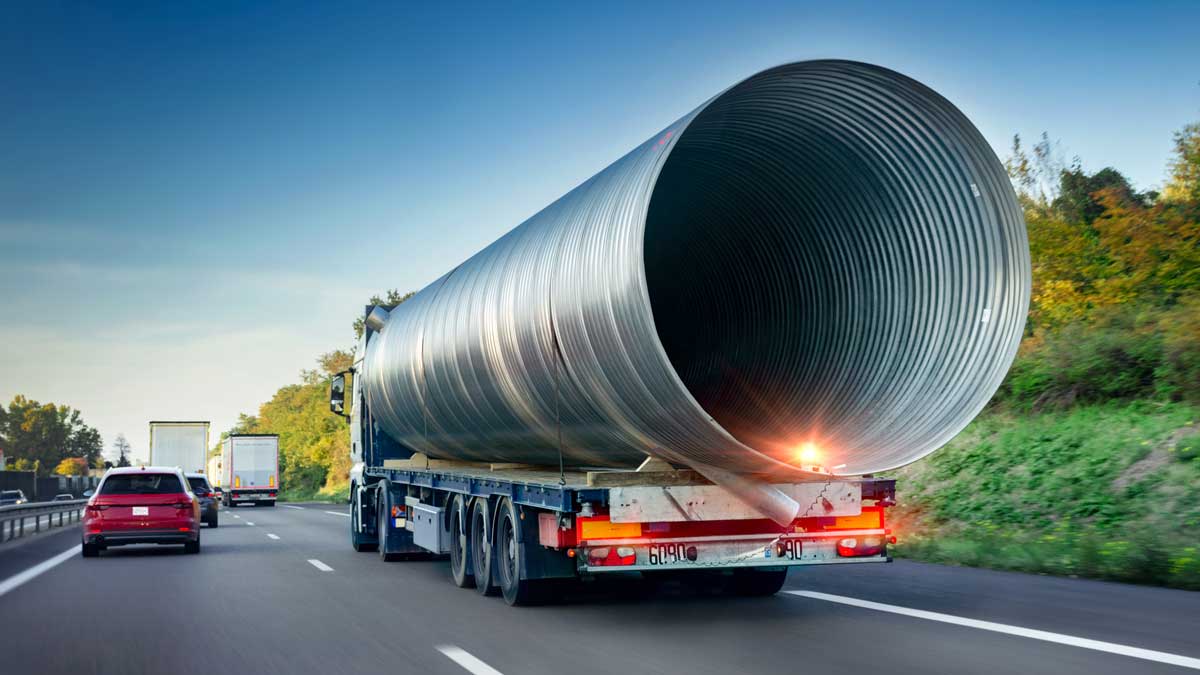
What You Need to Know about the Causes of Truck Accidents
There are many causes of truck accidents. The roadways that connect our communities are the lifelines of commerce, facilitating the transportation of goods and services across vast distances. However, the nature of the trucking industry and the fact that the roadways are shared with the public also brings with it a set of risks and challenges, chief among them being the occurrence of accidents. These accidents not only result in significant economic losses but, more importantly, they pose a serious threat to public safety.
We sourced data from the National Highway Traffic Safety Administration (NHTSA), the Federal Motor Carrier Safety Administration (FMCSA), the Department of Transportation (DOT), and various other resources, including commercial truck accident statistics, to examine and assess the leading causes of truck accidents.
In this helpful guide, we will dissect the leading causes of truck accidents, navigating through the intricacies of driver-related factors, vehicle-related factors, environmental considerations, and road design and layout.
Driver-Related Factors
Fatigue: Truck drivers, often confronted with demanding schedules and tight delivery deadlines, are at an increased risk of experiencing fatigue. The long hours on the road can lead to impaired concentration and delayed reaction times, creating a hazardous environment for both the truck driver and other road users.
Distracted Driving: Like any other driver, truckers are susceptible to distractions that divert their attention from the road. Activities such as texting, using a mobile phone or GPS, or engaging in non-driving-related tasks contribute to a significant number of accidents each year.
Inexperience: Inexperienced truck drivers, may struggle with handling the immense size and weight of their vehicles. Inexperience can lead to poor decision-making, inadequate maneuvering, and a higher likelihood of accidents.
Impaired Driving: Driving under the influence of alcohol or drugs is a concern for all motorists, including truck drivers. Impaired truck drivers may exhibit reduced coordination, impaired judgment, and slower reaction times, elevating the truck accident risk factors of accidents on the road.
Vehicle-Related Factors
Poor Maintenance: Regular maintenance is the backbone of safe trucking operations. Failure to conduct routine checks can result in mechanical failures, such as brake malfunctions or tire blowouts, which can have catastrophic consequences on the road.
Overloaded Trucks: Exceeding a truck’s weight capacity compromises its stability and braking ability. Overloaded trucks are more prone to accidents, putting not only the truck driver at risk but also endangering the safety of others sharing the road.
Equipment Failure: Critical components such as brakes, steering systems, or lights are integral to the safe operation of a truck. Equipment failures can lead to accidents, highlighting the importance of regular inspections and prompt repairs.
Environmental Factors
Weather Conditions: Adverse weather conditions, ranging from rain and snow to dense fog, can significantly impact visibility and road traction. Truck drivers navigating through challenging weather must exercise extra caution to mitigate the causes of truck accidents.
Poor Visibility: Limited visibility due to heavy rain or snow, dense fog, or low light conditions poses a substantial challenge for truck drivers. The inability to see other vehicles or obstacles on the road increases the likelihood of accidents, necessitating heightened awareness and precautionary measures.
Road Design and Infrastructure
Inadequate Signage: Poorly marked roads, unclear signage, or the absence of warning signs contribute to confusion among truck drivers, increasing the risk of accidents. Addressing these issues requires collaboration between transportation authorities and infrastructure planners to ensure the implementation of effective signage systems.
Construction Zones: Construction zones may contain unclear lane markings, uneven road surfaces, construction vehicles exiting and entering the road, modified speed limits, the presence of construction workers and equipment, lane reductions, and unpredictable traffic patterns. All of these create additional hazards for motorists, including truck drivers. Enhanced communication between construction teams and trucking companies is vital to minimizing the risk of accidents in these areas.
Legal Implications
Regulatory Violations: Failure to comply with trucking regulations, such as exceeding hours-of-service limits, can result in fines and legal consequences. Regulatory agencies play a crucial role in enforcing these standards to ensure the safety of both truck drivers and the public.
Liability Issues: Determining liability in a trucking accident involves navigating a complex legal landscape. The truck driver, the trucking company, and potentially other entities may face legal consequences based on negligence or failure to meet safety standards. Legal frameworks need to evolve to address the intricacies of modern trucking operations.
Talk to a Truck Accident Attorney
Various factors cause truck accidents. Understanding the causes of truck accidents is essential in building and presenting your case. Hiring a seasoned attorney who understands the leading causes of trucking accidents will give you confidence that your recovery will be maximized.
Reach out to Team Green Law today and let’s review your truck accident case.
Team Green is a different kind of law firm. We’re not going to make you promises we can’t deliver on. This is our promise to you: we will guide you through the legal process, working with you through straight talk and personal attention, and we’ll work for you with smart, aggressive representation to get the settlement or judgment you deserve. Other lawyers show their case results on their websites, but not only does that imply results they can’t guarantee — it’s against the Indiana Rules of Professional Conduct (Rule 7.1 [2] (2)). But you should know that the results of one successful case does not tell us what will happen with you. We will work with you to set realistic expectations of the timeline and money that could be recovered for your unique case.






